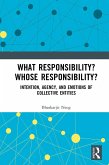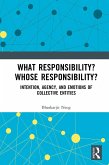
eBook, ePUB
27. Oktober 2023
Taylor & Francis eBooks
Gebundenes Buch
Intention, Agency, and Emotions of Collective Entities
27. Oktober 2023
Routledge India / Taylor & Francis
Ähnliche Artikel


21,95 €
Sofort per Download lieferbar


eBook, PDF
25. November 2024
Taylor & Francis eBooks

0,00 €
Sofort per Download lieferbar

eBook, PDF
30. Juli 2024
Taylor & Francis eBooks




19,95 €
Sofort per Download lieferbar
Ähnlichkeitssuche: Fact®Finder von OMIKRON

